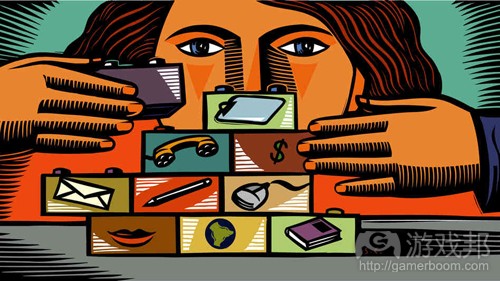研究表明游戏有助于提高老年人认知功能
作者:Dean Takahashi
脑研究专家Adam Gazzaley在科学期刊《自然》上发表了他的研究结果,表明在神经治疗方面,电子游戏有助于改善老年人的认知功能。
该研究发现,原型游戏《NeuroRacer》可以帮助老年人提高他们同时处理多项任务的能力。这款游戏要求玩家一边抓鱼,一边在有水形成的障碍训练场上赛跑。大脑游戏长期以来被认为有助于提高认知能力。但Gazzaley的研究表明,如果游戏是针对认知缺陷,如老年人缺乏同时处理多件事的能力,而设计的,那么玩这种游戏是有一定治疗效果的。
这个发现发表在知名权威研究期刊上以后,位于波士顿的Akili Interactive实验室又进一步做了研究。此次研究由加州大学Neuroscience Imaging中心主任Gazzaley和日内瓦大学的认知神经学教授Daphne Bavelier发起。二人都是Akili实验室的顾问,但Gazzaley的研究报告与该实验室无关。
该研究其实是一项大工程,早在多年以前,任天堂宣布开发“Brain Age”游戏时,创造真正造福社会的神经游戏时就已经开始了。但虽然许多公司都加入这个工程,如Lumos实验室和Advanced Brain Monitoring公司,几乎没有什么是针对临床治疗的。
Gazzaley的实验方法是,让老人玩《NeuroRacer》,且在玩的过程中时时打断他们;经过一个月十多个小时的游戏后,玩家更加擅长游戏了,并且认知能力都有显著提高,在游戏中的得分甚至超过20岁左右的玩家。在停止训练后,这种操作水平可以持续6个月。
现在,Akili团队由Matthew Omernick领导,这位LucasArts曾经的美术总监、现在的执行创意总监,将致力于把这类游戏商业化。这类游戏将与许多其他以大脑训练为主题的应用展开竞争,但同样参与这项研究的Eddie Martucci认为,它有一个很大的优势,那就是为高龄玩家量身定制。
“我们想把前沿科学运用于治疗,而电子游戏就是一个很好的形式。我们的格言是:好科学,好游戏。”
Akili将针对更广的人群进行初步研究。该实验室希望制作一款Unity3D游戏,并且最终由卫生保健服务商推广给老年人。
Akili首席业务官Eric Elenko和PureTech风险投资公司的合作方表示,该实验室是在PureTech风险投资的帮助下创立的。Akili目前有6名雇员。与《NeuroRacer》一样,Akili的游戏总是要求玩家同时执行两个任务:一个考验玩家的小肌肉运动技能,另一个挑战玩家的感官知觉。那有助于玩家提高大脑灵活性,而大脑灵活性提高又会对全身功能产生更大的好处。这两种技能对于人类进行日常活动如读报纸或煮饭,是非常重要的。
“我们的游戏看起来和感觉起来与许多电子游戏都很像,但在表面之下是一个特殊的认知引擎。对于执行功能弱的人,我们认为这款游戏是非常有意义的。”(本文为游戏邦/gamerboom.com编译,拒绝任何不保留版权的转载,如需转载请联系:游戏邦)
Researcher says a neurogame can improve multitasking skills
by Dean Takahashi
Brain researcher Adam Gazzaley has published research in the scientific journal Nature that shows how a video game has helped the cognitive function of older people in the emerging field of neuro-therapeutics.
The research shows that prototype game NeuroRacer helped older people improve their ability to handle more than one task at a time. It did so by getting them to focus on catching fish and racing through a watery obstacle course at the same time. Brain games have long billed themselves as having cognitive benefits. But Gazzaley’s research shows that if a game is tailored to address a precise cognitive deficit, such as the ability for older people to multitask, it can be effective.
That finding, published in the esteemed research journal, is being further developed by Boston-based Akili Interactive Labs, which was started by researchers Gazzaley, the founding director of the Neuroscience Imaging Center of the University of California at San Francisco, and Daphne Bavelier, a professor of cognitive neuroscience at the University of Geneva. Both are advisers to Akili, but Gazzaley’s research paper is independent of the company.
The researchers’ work is part of a larger effort — started many years ago with Nintendo’s Brain Age game — to create neurogames that have real benefits for society. But while many companies have taken up this cause, such as Lumos Labs and Advanced Brain Monitoring, few have gone to the trouble of doing clinical research.
Gazzaley’s research team showed that by training older adults to process interruptions in the game over the course of a dozen hours of play in a month, the players became better at the game and they saw generalized improvements in their cognitive abilities overall. The subjects improved so much that they had higher scores than untrained 20-year-olds. The skills remained six months later without more practice.
Now the Akili team led by Matthew Omernick, the executive creative director and former art head at LucasArts, will work on turning the game into a commercial product. That game will compete with a number of other apps that focus on brain training, but it will have the advantage of being crafted in a way that is known to have benefits for older players, said Eddie Martucci, the vice president of research at Akili, in an interview with GamesBeat.
“We want to take the cutting-edge science, go through a strong medical process, and do that in a form that is an engaging video game,” Martucci said. “Our motto is better science, better games.”
Akili is going to work on pilot studies that will do focused research on larger groups of people. The company hopes to create a Unity 3D-based game that will eventually be recommended by health care providers in taking care of older patients.
Eric Elenko, the acting chief business officer at Akili and a partner at PureTech Ventures, said that the company was formed in 2011 with PureTech’s help. Akili has six employees. Like NeuroRacer, Akili’s game overlays two tasks on top of each other: a fine motor skill task, combined with a sensory perception task. That helps a person develop better mental flexibility, which can be generalized into broader benefits. Both skills are important for daily tasks such as reading a newspaper or cooking a meal.
“It looks and feels like a lot of video games” with brain training as a focus, Martucci said. “But under the hood, it has a specific, cognitive engine. We think this game will have utility for anyone who is weak in executive functions.”(source:venturebeat)
下一篇:阐述游戏设计中的缺口定义及其作用








































 闽公网安备35020302001549号
闽公网安备35020302001549号